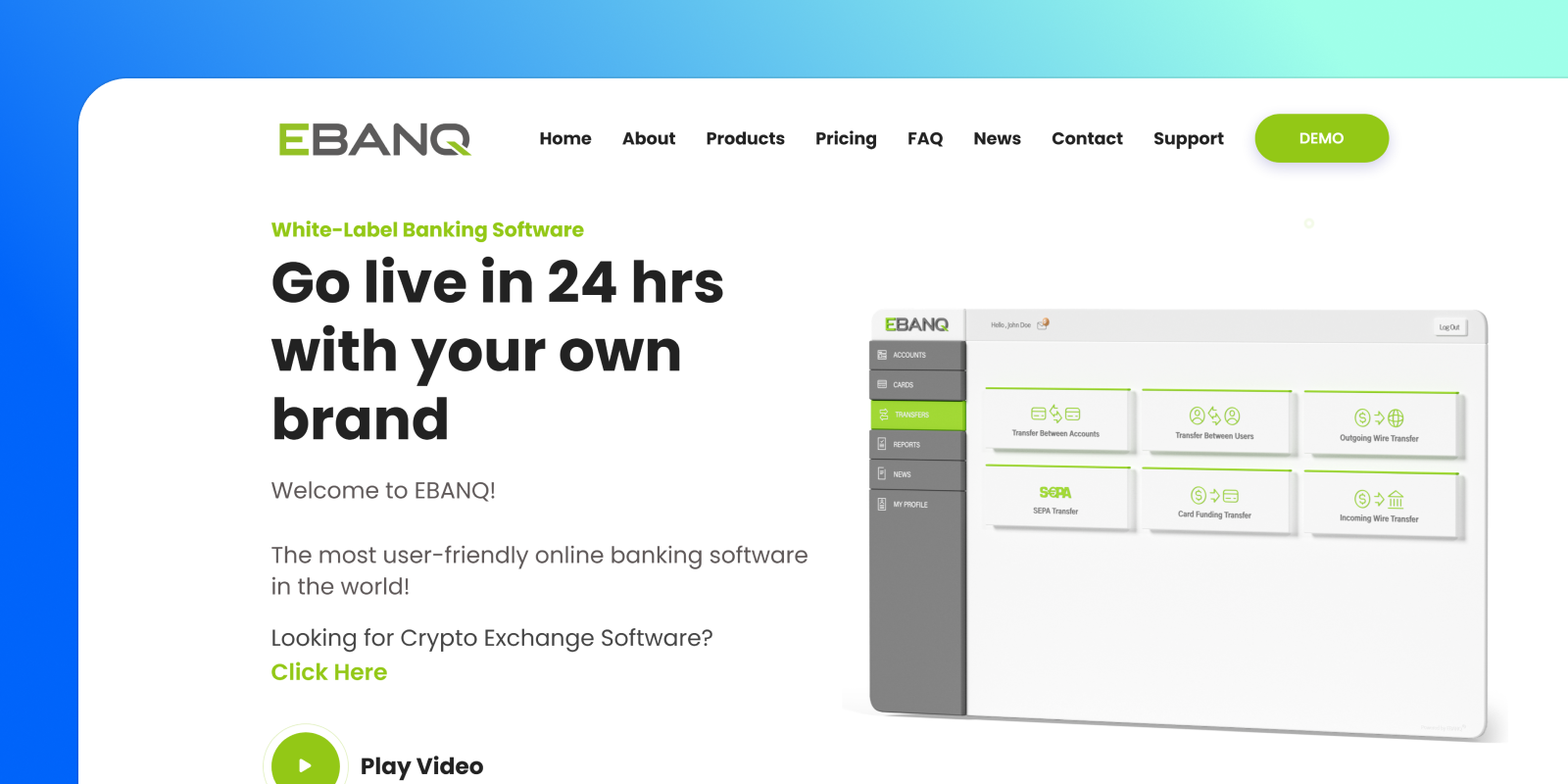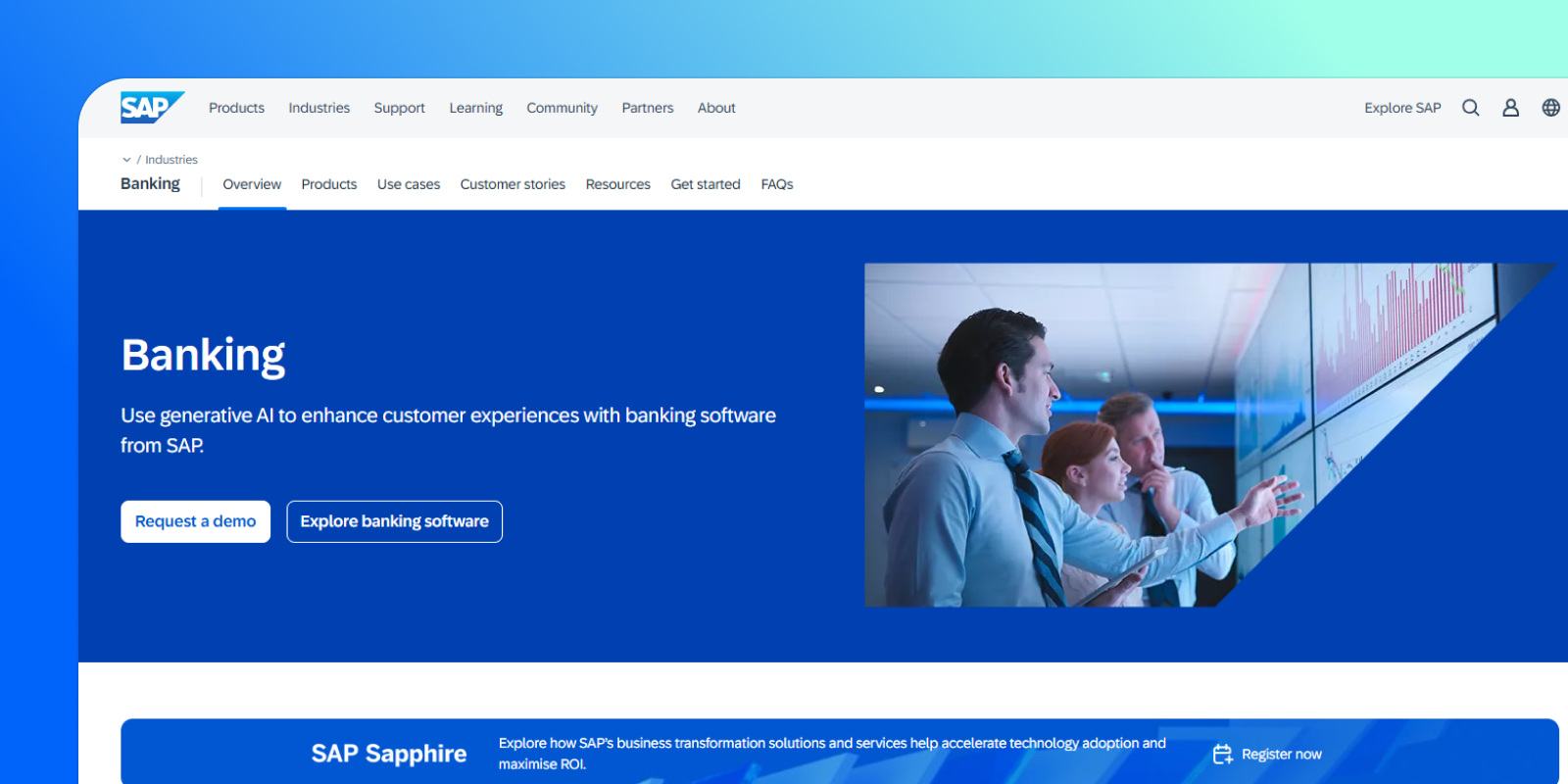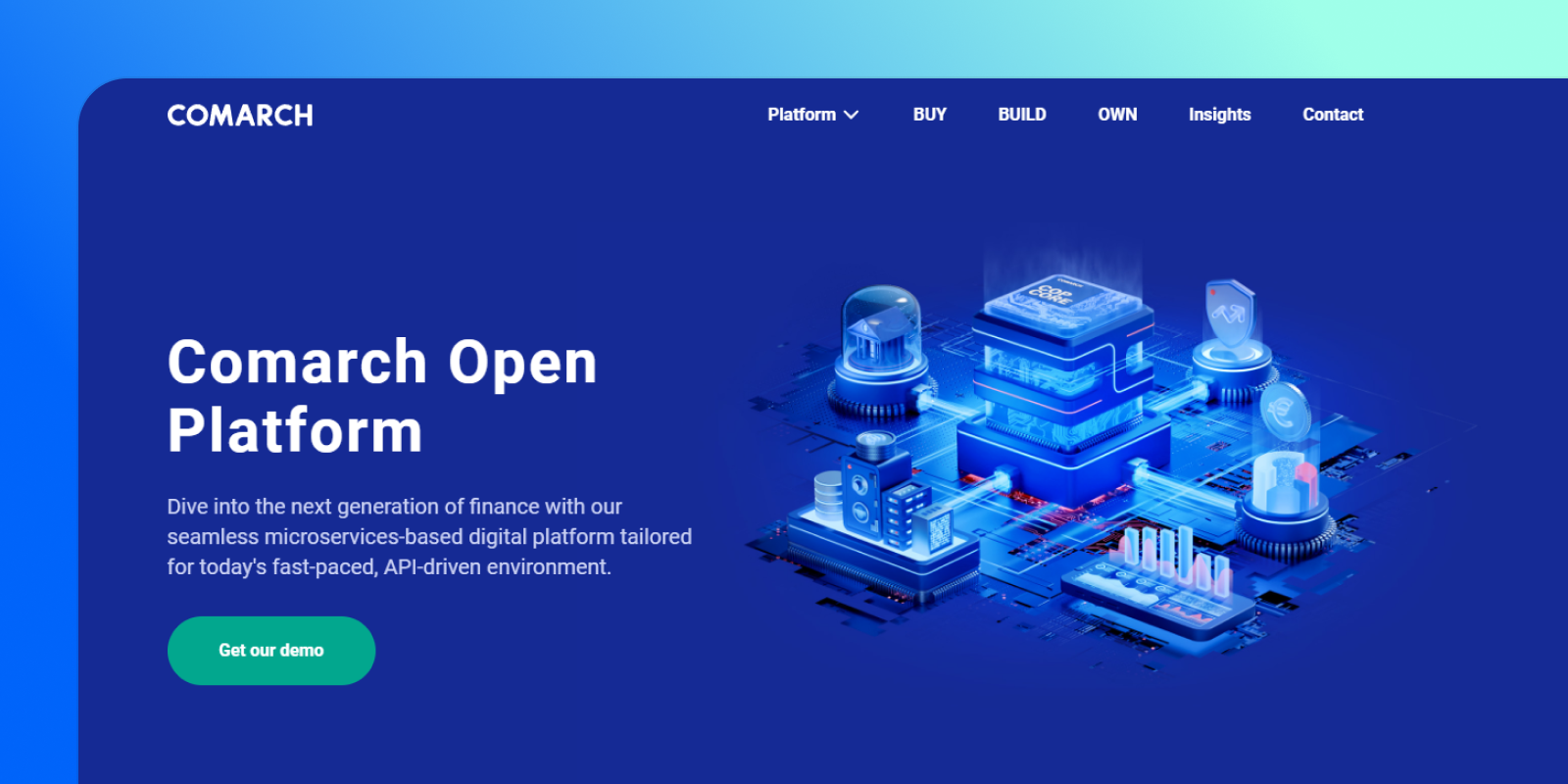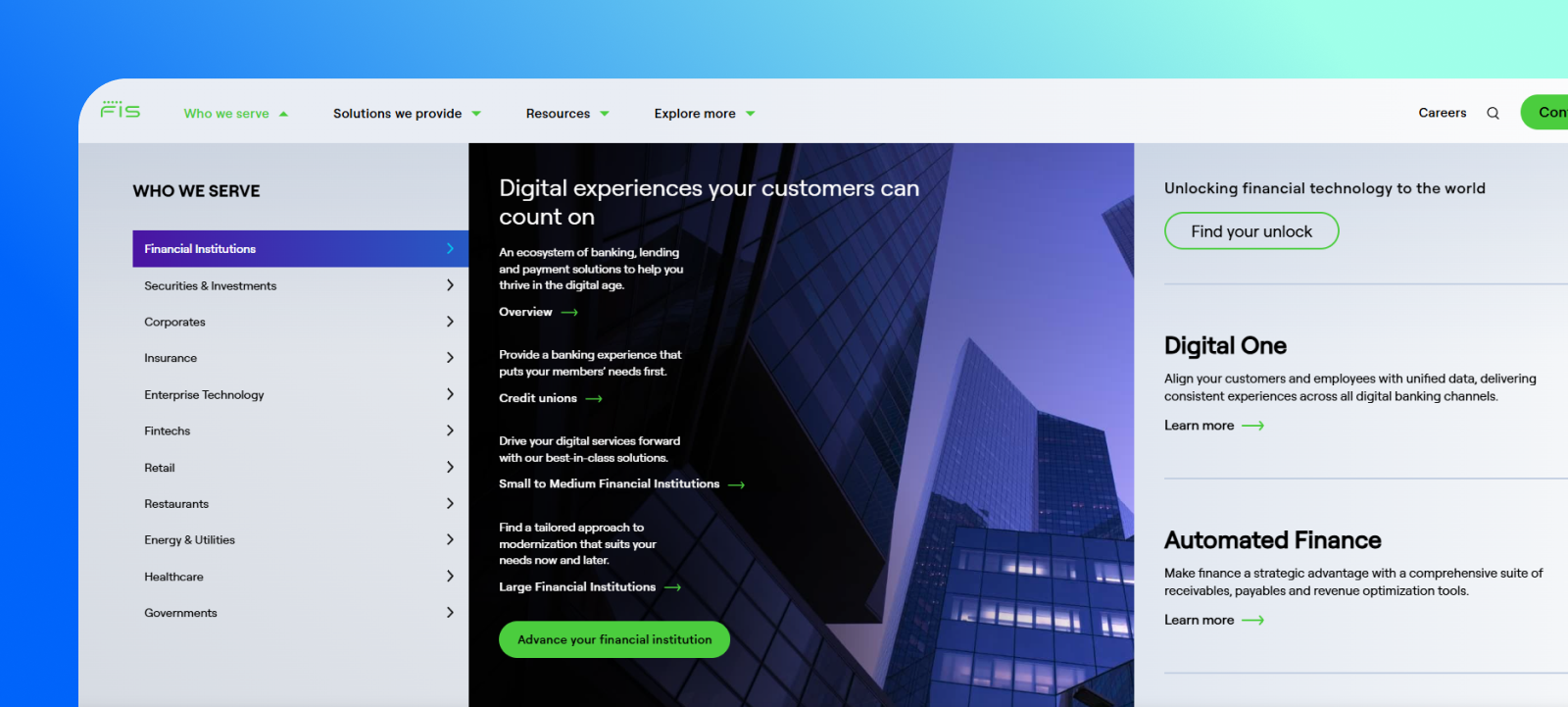
In 2025, launching a financial product means thinking like a tech company. Whether you're starting a neobank, upgrading your infrastructure, or moving into digital payments, speed, flexibility, and scalability are essential.
Modern banking platforms give you that edge. They come with powerful features, quick deployment options, and the ability to grow alongside your business.
If you're tired of legacy systems or piecing together tools that can't keep up, this guide is for you.
Let’s get into the 7 best banking software platforms below.
Banking in 2025 depends on software.
As expectations grow, financial institutions are under pressure to offer faster, safer, and more personalised services.
Consumers no longer wait in queues or accept clunky online experiences. They want instant access, smart features, and apps that actually help them.
To stay relevant, banks need software that can deliver all of that, reliably and at scale.
Banking software isn’t one-size-fits-all. Here are the main types that keep modern finance running:
Core banking systems: The foundation of account management, transactions, and financial records. Every deposit, loan, and payment moves through this layer.
Digital banking platforms: Used for building mobile apps and online portals. They support everything from money transfers to real-time spending insights.
Investment and corporate banking tools: Handle more complex use cases, including large transactions, portfolio tracking, and compliance for business clients.
CRM and customer engagement systems: Help banks understand user behaviour, personalise communication, and improve service quality.
Security and fraud prevention: Built to detect suspicious activity, protect user data, and meet regulatory standards across regions.
Analytics and reporting software: Provides insight into operations, customer usage, and financial performance. Supports better decisions and faster problem-solving.
API and open banking infrastructure: Enables banks to connect with third-party apps, fintech tools, and new digital services through secure, flexible integrations.
Each type plays a role in building financial products that are fast, compliant, and easy to use. For institutions looking to modernise, picking the right mix of tools is a strategic decision, not just a technical one.
Next, we’ll look at the top banking software platforms leading this shift in 2025.

Meniga helps banks turn transaction data into real customer value. As a white-label digital banking platform, it powers personalised, data-driven experiences for over 165 financial institutions in more than 30 countries, serving 100 million users worldwide.
The platform focuses on three things banks struggle with the most: making sense of transaction data, building real customer engagement, and staying relevant in a crowded digital market.
Banks like Tangerine, UOB, Swedbank, and Commerzbank rely on Meniga to modernise their services without overhauling their infrastructure.
With growing pressure to match the speed and personalisation of neobanks, Meniga gives traditional institutions the tools to close that gap – quickly and at scale.
1. Transaction enrichment: Automatically categorises and cleans transaction data to make it readable, insightful, and actionable for customers.
2. AI-powered personalised insights and advice: Delivers tailored nudges, recommendations, and overviews based on spending patterns and financial behavior.
3. Hyper-personalised engagement layer: Encourages more frequent logins, improves Net Promoter Scores, and grows revenue with micro-targeted product offers.
4. Automated savings features: Makes saving feel effortless with flexible rules and fun user experiences that boost financial wellness.
5. Carbon tracking: Lets users see the carbon footprint of their purchases, helping banks add ESG value to everyday banking.
6. Islamic banking support: Provides tools designed for Islamic financial institutions, built to respect compliance and cultural values.
7. PSD2 and open banking capabilities: Supports both Account Information Services (AIS) and Payment Initiation Services (PIS) with secure, ready-to-integrate APIs.
8. Strong security and privacy: Data privacy is built into the product. Customer data is protected while enabling advanced personalisation.
9. Modular and scalable: Banks can implement Meniga's platform without replacing core systems, thanks to flexible architecture and API-first design.
10. Future-ready tech stack: Supports AI-driven features like chatbots and smart assistants, positioning banks to meet tomorrow’s customer expectations.

EBANQ is a mobile-ready digital banking platform for various financial service businesses, including neobanks, EMIs, payment institutions, crypto exchanges, and remittance providers.
Built with flexibility and speed in mind, EBANQ can be deployed in just 24 hours and customised to reflect your brand’s identity from day one.
With a clean, intuitive interface and broad support for currencies and value types, it offers a streamlined way to manage client accounts, payments, and permissions across global markets.
1. Intuitive design across devices: A responsive user interface that adapts smoothly to mobile, tablet, and desktop, providing a consistent experience for both customers and back-office teams.
2. Fast deployment, fully branded: Launch your platform in as little as 24 hours. EBANQ allows full brand customization, from colors and logos to layout and user experience.
3. Role-based admin controls: Create multiple admin accounts with tailored permissions to manage users, monitor activity, and control access across departments or teams.
4. Configurable fees and customer segments: Define different customer tiers with individual fee structures, giving you more control over pricing and client management.
5. Multi-currency and digital asset support: Supports 30+ fiat currencies and enables cross-currency transactions using ECB reference rates. You can also add cryptocurrency or custom units of value as needed.

SAP's banking solutions help financial institutions transform into digital businesses by driving growth, managing risks, and integrating processes efficiently.
These solutions leverage data-driven intelligence to enhance customer experiences, digitalise product lifecycles for operational effectiveness, and optimise financial insight and risk control transparency.
SAP also focuses on delivering sustainable financial products and improving employee retention through effective talent management.
1. Cloud banking ERP: Enables scalable and flexible product development while ensuring compliance.
2. Omnichannel banking: Engages customers across multiple channels with automated processes for improved efficiency.
3. Risk management tools: Provides regulatory compliance, credit risk assessment, and fraud detection capabilities.
4. Financial management: Offers accurate financial information and cost control through integrated systems.
5. Multi-bank connectivity: Simplifies connections with multiple banks for enhanced cash and liquidity management.

Comarch Open Platform is a flexible digital platform for the modern, API-driven financial environment, enabling businesses to build and customise their digital banking systems.
It supports a "buy & build" strategy, allowing the integration of pre-built modules with custom-developed components while also offering the "own" model for complete autonomy.
The platform's cloud-native architecture ensures scalability and resilience, reducing downtime and enhancing performance.
It automates processes, reduces transaction costs, and attracts new customers with a modern, intuitive user experience. Comarch's platform helps businesses avoid vendor lock-in, offering control over their digital channel and promoting innovation.
1. Cloud-native and microservices architecture: The platform is built on a cloud-native, microservices-based framework, ensuring scalability, resilience, and quick updates while supporting seamless integration with third-party solutions.
2. Buy-build-own strategy: Offers flexibility for banks to combine pre-built modules, custom development tools, and full ownership of their digital ecosystem, avoiding vendor lock-in.
3. Ready-made modules: Includes specialised modules like SME Banking, Corporate Banking, and Trade Finance, enabling rapid deployment of tailored solutions for business clients.
4. Advanced DevOps tools: Provides built-in DevOps processes for smooth deployment and faster implementation timelines, allowing parallel development streams.
5. Enhanced User Experience: Features a modern design system and intuitive UX/UI components to improve customer journeys and attract new users.
6. Open APIs and ecosystem integration: Facilitates easy integration with fintechs, external value-added services (VAS), and cloud services to expand functionality.
7. Automation and cost efficiency: Automates processes to reduce transaction costs and enhance operational efficiency while boosting digital transaction volumes.

Mambu is a cloud-native banking platform that allows financial institutions to build modern banking and lending experiences.
It offers a composable approach, combining independent components and services to create tailored solutions.
With Mambu, companies can quickly launch new products, scale operations globally, and realise cost-effective digital transformations without heavy upfront investments.
The platform's lending and deposits engines support various financial offerings, making it suitable for banks, fintechs, and other businesses looking to innovate and stay competitive.
1. Composable architecture: Mambu's platform allows for assembling independent components and systems to meet specific business needs, providing flexibility and rapid innovation.
2. API integrations: Offers extensive API integrations for seamless connectivity with existing systems, fintechs, and other third-party services, enhancing operational efficiency and customer experience.
3. Modular lending and deposits: Supports a wide range of lending and deposit products, from origination to servicing and collections, allowing customisation to meet diverse customer needs.
4. Scalability and cost efficiency: Built for scale, Mambu enables rapid deployment and cost-effective operations, reducing the resources needed for product launches and maintenance.
5. Security and compliance: Adheres to state-of-the-art security standards and regulatory compliance, ensuring robust data protection and governance.
6. Event-driven functions: Mambu Functions allow users to extend the platform's capabilities with custom logic, automating tasks like IBAN generation and late interest adjustments.
7. Partner ecosystem: Integrates with leading technology partners to expand system capabilities and solve complex challenges within the financial sector.

Temenos provides financial institutions with access to a wide range of banking capabilities through a secure and compliant cloud-based platform.
It offers services for retail, business, corporate, and wealth banking, supported by continuous upgrades and pre-assembled banking services.
The SaaS solution aims to reduce costs, improve scalability, and lower carbon footprints for banks.
Temenos SaaS supports progressive banking modernisation, allowing banks to leverage cloud benefits while managing existing technology portfolios.
1. Cloud-native and scalable services: Temenos SaaS offers cloud-native, elastically scalable services that enable banks to transition from on-premise installations to a more agile and efficient banking system, reducing costs and complexity.
2. Pre-configured banking products and APIs: The platform includes over 120 pre-packaged banking products and more than 700 pre-configured APIs, facilitating rapid deployment and integration with other systems.
3. Temenos exchange ecosystem: Provides immediate access to the Temenos Exchange ecosystem with over 115 complementary solutions, simplifying integration with fintechs and other services.
4. Continuous updates and security: Offers continuous updates, advanced security controls, and high-performance Service Level Agreements (SLAs), ensuring banks stay secure and compliant while benefiting from the latest technology advancements.
5. Composable banking capabilities: Allows banks to compose banking services to drive new revenue streams, support Banking-as-a-Service, embedded finance, and digital transformations across various banking segments.

FIS provides technology solutions that power the global economy across the full money lifecycle, including storing, transferring, and investing.
It offers core banking systems, digital banking solutions, and payment technologies to deliver seamless experiences across all customer touchpoints.
FIS aims to help financial institutions securely grow and manage deposits, ensure efficient flow of funds, and optimise financial ecosystems for informed decision-making.
The company emphasises innovation, sustainability, and insights to help clients navigate and transform the way the world does business.
1. Core banking systems: FIS provides core banking platforms like IBS and Profile, which are scalable, flexible, and support real-time operations. These systems help banks manage accounts, transactions, and customer data efficiently across multiple channels.
2. Digital banking solutions: Digital One delivers omnichannel banking experiences for both customers and employees. These solutions enhance user experience and provide real-time access to customer and transactional data.
3. Payment processing solutions: FIS supports various payment processing services, including real-time, push-to-card, and automated clearing house payments across over 50 countries.
4. Risk management and compliance: The company provides robust risk management tools and compliance solutions to help financial institutions manage regulatory risks effectively.
5. Consulting and professional services: FIS offers consulting services that assist banks in optimising their operations, managing transformations, and improving overall performance.

Meniga helps financial institutions turn everyday banking into a more intelligent, engaging, and profitable experience. By transforming raw transaction data into actionable insights, Meniga enables banks to personalise services at scale, drive deeper engagement, and unlock new revenue streams – all while enhancing trust and satisfaction.
As customer expectations shift toward seamless, personalised, and mobile-first experiences, banks are under pressure to modernise fast.
Meniga delivers the infrastructure and intelligence to make that possible without requiring a full rebuild of existing systems.
With more than 165 partner institutions in over 30 countries, Meniga’s technology powers over 70 million digital banking users globally.
1. Advanced transaction enrichment
Meniga’s machine learning models clean, categorise, and enrich raw transaction data in real time. This turns hard-to-read data into meaningful, human-friendly formats that help users clearly understand their spending.
Banks can use this enriched data to deliver relevant content, financial tips, and offers that reflect each customer’s behaviour.
2. Hyper-personalised digital experiences
Instead of offering generic dashboards, Meniga enables banks to deliver dynamic, tailored financial journeys.
Whether it's helping users track goals, reduce spending, or discover savings opportunities, Meniga makes everyday banking feel relevant and proactive.
This personalisation drives more frequent logins, better customer retention, and higher satisfaction.
3. Embedded customer engagement tools
The platform includes an orchestration layer that enables banks to build interactive, neobank-grade features – without rebuilding their tech stack.
These include personalised newsfeeds, take out rewards, goal tracking, savings nudges, and contextual offers, all designed to encourage users to return frequently and engage meaningfully.
4. Automated savings features
Meniga helps customers build healthier financial habits through automated, customisable savings tools.
Even users with limited disposable income can set up micro-savings triggers that grow balances over time – leading to greater deposit growth for banks and stronger financial wellbeing for users.
5. Carbon insight and ESG integration
Through its Carbon Insight feature, Meniga enables users to view the environmental impact of their purchases directly within their banking app. This helps banks align with sustainability initiatives while adding real value for environmentally conscious consumers.
6. Open banking and regulatory readiness
Meniga supports both Payment Initiation Services (PIS) and Account Information Services (AIS), making it PSD2-compliant and ready for markets embracing open banking.
Its APIs allow banks to plug in new services quickly and securely, adding flexibility without operational risk.
7. Security and privacy by design
The platform is built with enterprise-grade security, respecting data protection regulations across jurisdictions. Personalisation and analytics happen in secure environments, ensuring that customer trust is protected while delivering meaningful insights. Also, Meniga is fully ISO 27001 certified.
8. Scalable and modular architecture
Meniga’s modular API framework makes it easy to integrate with existing systems. Banks can adopt individual components or full feature sets depending on their digital maturity, allowing for quick wins without disrupting core infrastructure.
9. Proven business impact
Meniga’s platform has driven measurable results, including increases in credit card sales, customer savings, platform engagement, and Net Promoter Scores. Its ability to shift banks from reactive service to proactive, relationship-driven engagement is key to long-term digital transformation.
Speak with the Meniga team today for a free demo on how transaction data can become your most valuable digital banking asset!